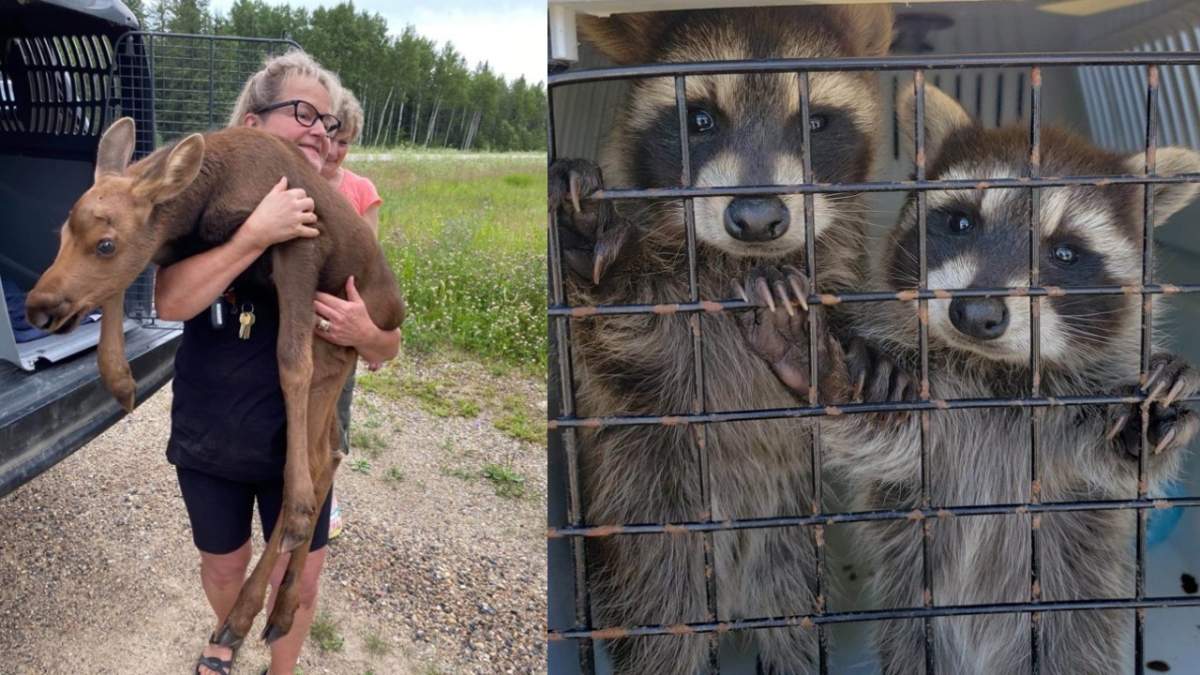With everyone stuck at home this spring when the coronavirus pandemic hit, cat and dog adoptions skyrocketed — but now a different kind of pet is becoming popular in Saskatchewan.

“We’re seeing an alarming trend of people finding wildlife and they feel entitled to keep it,” said Bonnie Dell, president of the Wildlife Rehabilitation Society of Saskatchewan (WRSOS).
The organization rescued a number of animals in the past week alone, including a malnourished moose calf that was kept in a padlocked room for weeks. They also took in a badger, two raccoons, and a turkey vulture that was left on the side of the road with a “badly broken wing.”
The bird was very used to humans, meaning it had been kept for “some time” Dell said.
Help for the bird came too late. Despite getting surgery to try and fix its injury, the bird had to be euthanized on Thursday.
Dell said people don’t know how to take care of wild animals, and “almost 100 per cent of the time they have not been fed properly.
“If you have to google how to feed an animal … you should not have that animal,” she said.

Get breaking National news
Improper feeding often leads the animals to go blind, Dell said, or to suffer neurological issues. The animals also face “emotional scars” once they’ve been turned over for rehabilitation.
“They don’t know that they’re a wild animal,” she explained. “Especially raccoons, they’re taken from being put in pajamas and sleeping with family members to being treated like a raccoon and it’s really traumatizing to them.”
Often people keep these animals for weeks or months, Dell said, and they only finally call her organization when the pet starts getting aggressive or can’t be handled any longer.
“It had clearly been someone’s pet and they had tired of it and dumped it at a golf course.”
That raccoon had to be put down.
The province’s ministry of environment says it’s illegal to take wild animals home.
Anyone who finds a wild animal is asked to contact the ministry’s TIPP line, or to contact the Wildlife Rehabilitation Society of Saskatchewan.







Comments
Want to discuss? Please read our Commenting Policy first.